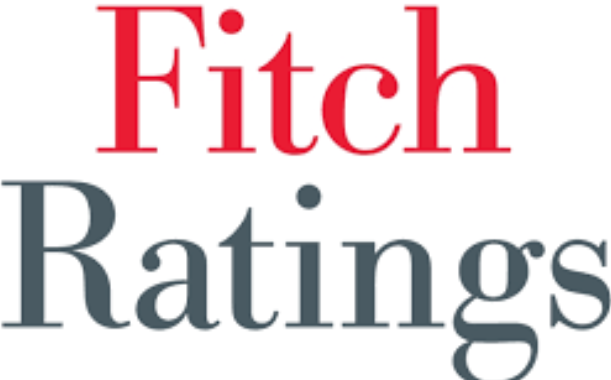E-Financial
Why Nigeria is Corrupt by Okonjo-Iweala

Dr. Ngozi Okonjo-Iweala, minister of Finance and Coordinating Minister for the Economy, has claimed that lack of institutions, systems and processes to block and prevent corruption, alongside the problem of impunity in Nigeria, is basically the reason that corruption has been so hydra-headed in the country and needs to be cracked and tackled.
Okonjo-Iweala said that corruption in Nigeria needed to be tackled from the root causes while technology must be deployed to block leakages in the economy.
She spoke at a forum organized by the Catholic Caritas Foundation of Nigeria under the Catholic Bishops Conference of Nigeria (CBCN), with the theme, “Blocking Leakages in the Economy Amidst Dwindling Oil Revenue,”
“That is what this administration is doing, tackling the root cause of corruption,” she explained. “The problem is that we have been looking at the symptoms and not the causes of the disease. The cause of the disease is that we don’t have the institutions, systems and processes to block and prevent corruption in the first place, that is the only difference between us and people abroad.
“So if we arrest people for being wrong, which we must, I believe that impunity in the country has to be tackled, but behind that impunity, if you don’t do something to stop the sources, the next set of people will also come. Today, about 14 people are standing trial over the pension scam.
“We have a system that is cash-based, but we have introduced Government Integrated Financial Management System. 14 agencies in December tried to pay more than what was programmed but the system locked them out and this led to the delay of their staff salaries until the agencies were restored manually. We have been able to weed out 62, 892 ghost workers and saving about N209 billion.”
Rev Fr Ralph Madu, CBCN secretary general had earlier observed that the negative reports about the nation’s economy call for concern, and that Nigeria will not turn into a failed state, stressing that the government needed to collaborate with the church in areas of comparative advantage.
Also Rev Fr Everistus Bassey of Caritas Nigeria, argued that economic progress should not be measured solely by the Gross Domestic Product (GDP). Rather, but the well-being of a nation should be measured by a series of indicators linked to social protection systems.
Such includes access to quality services, decent work, adequate, safe and nutritious food, adequate housing, personal safety and basic income security, as well as a safe, clean, healthy and sustainable environment.”
The minister explained further: “The first time I was in government, Nigeria was second to the bottom on the Transparency International Corruption Index, it was 1.4, 132 out of 133 countries; we said we must do something to improve and by 2006, when we left government, it was 2.2 out of 10 and 2011, it was 2.4 while the score now is 2.7.
“I am not saying that 2.7 is a good score, Nigeria needs to move to 6 or 7. Even if we don’t have perfection, we must not sell to our children a score of 2.7, we must fight to move that number.”
Okonjo-Iweala explained that a growing economy that does not touch people’s lives is not the type desired. However, she noted that if the economy does not grow, poverty cannot be addressed. Therefore, “we must focus on centres that create jobs, that is the way to tackle poverty.
“Agriculture promises to be a sector that could be used to address poverty but it has to be made attractive. Housing has a social impact – it puts a roof over your head and gives you a stake. We need to create an institution that would pump in liquidity into the housing sector.
“We want to create about 200,000 mortgages annually, we need evidence-based discussions in the country, we need to promote entrepreneurship; 5,400 entrepreneurs have been created by the present administration. We are also supporting the manufacturing sector to create decent jobs.”
More so, “the Nigerian economy as at today is diversified, what is not diversified is the source of income as oil contributes 70 per cent of the nation’s revenue. We need to broaden our tax base, audit and look at those abusing exemptions. We gave ourselves a target of recovering N70 billion but recovered over N100 billion. That is an example of how we are blocking leakages.”
On excess crude account, the minister said: “They said we should not save, that the rainy days are already here and we should share the excess crude money.”
E-Financial
EFCC Seeks Suspension, Prosecution of Banks for Aiding N162Bn Crypto Scams

Economic and Financial Crimes Commission (EFCC) has called for the suspension and prosecution of deposit banks, Fintechs and microfinance banks aiding and abetting fraudsters in defrauding Nigerians through fraudulent schemes.

Wilson Uwujaren, director of Public Affairs of the Commission, made the call in Abuja, on the sidelines of a recent news briefing about negligence and compromise of the financial institutions that cost victims billions of naira.
Uwujaren said that the commission uncovered widespread compromise within Nigeria’s financial system, involving an N18.7 billion investment scam and fraudulent transactions of N162 billion in cryptocurrencies.
He accused one new-generation bank, six Fintechs and some microfinance banks of aiding and abetting fraudsters in laundering their proceeds.
“It is worrisome that investigations by the commission showed that cryptocurrency transactions to the tune of N162 billion passed through a new generation bank without any due diligence.
“Investigations also showed that a single customer maintained 960 accounts in the new generation bank, and all the accounts were used for fraudulent purposes.”
He said that the financial institutions clearly compromised banking procedures and allowed the fraudsters to safely change their ill-gotten gains into digital assets and move them to safe destinations.
“The Commission is calling on regulatory bodies to bring financial institutions to compulsory compliance with regulations in the areas of Know Your Customers (KYC), Customer Due Diligence (CDD), Suspicious Transaction Reports (STRs) and others.
“Deposit money banks, Fintechs and microfinance banks found to be aiding and abetting fraudsters should be suspended and referred to the EFCC for thorough investigation and possible prosecution,” he said.
He said that the scams of N18.7 billion were in two categories, adding that the first was a syndicate of fraudsters that employed an airline discount scheme to lure their victims.
The second one, according to him, involved a company named Fred and Farid Investment Limited, simply called FF Investment, which lured Nigerians into a bogus investment arrangement.
“The modality of the fraudsters in the airline scam involved a string of carefully devised airline discount information that any unsuspecting foreign traveller will fall for.
“What they do is to advertise a discount system in the purchase of flight tickets of a particular foreign carrier.
“The payment module is designed in such a way that their victims would be convinced that the payment is actually made into the account of the airline.
“No sooner is the payment made than the passenger’s entire funds in his bank account are emptied.”
He said that over 700 victims had fallen into the trap of fraudsters through the scheme with a total loss of N651.1 million.
Uwujaren said that the commission succeeded in recovering and returning N33.63 million to victims of the scam and cautioned Nigerians to be more vigilant.
The second scheme, according to him, involved a company named Fred and Farid Investment Limited, simply called FF Investment, which lured Nigerians into bogus investment arrangements.
“More than 200,000 victims have been defrauded in this regard. A total sum of N18.1 billion was raked in through nine companies offering diverse investment packages.”
Uwujaren said that foreign nationals are behind the schemes, with three Nigerian accomplices who have been arrested and charged in court.
E-Financial
Fitch Downgrades Afreximbank to ‘BB+’/Stable Amid Concerns Over Ghana’s Debt

Fitch Ratings has downgraded African Export-Import Bank’s (Afreximbank) Long-Term Issuer Default Rating (IDR) to ‘BB+’ from ‘BBB-’.

Fitch also downgraded Afreximbank’s Short-Term IDR to ‘B’, from ‘F3’, and the long-term ratings on the bank’s global medium-term note programme and debt issuance to ‘BB+’, from ‘BBB-’.
The global rating institution subsequently withdrew the bank’s ratings.
In a statement posted on its website, Fitch explained that the downgrade “reflects our revision of Afreximbank’s policy importance risk to ‘medium’ from ‘low’ following the announcement of an agreement on Ghana’s debt to Afreximbank in the context of Ghana’s broader restructuring”.
It said, “This has led us to revise our assessment of Afreximbank’s business profile to ‘high risk’ from ‘medium risk’, which resulted in an overall business environment notching of -3 (-2 previously).”
Essentially, a BB+ /Stable rating from Fitch is considered non-investment grade, also known as high-yield or “junk”.
The statement added, “Fitch has chosen to withdraw the ratings for commercial reasons. Fitch will no longer provide ratings or analytical coverage for the bank.”
In arriving at its decision, Fitch stated, “Afreximbank and Ghana announced in December 2025 that they had reached an agreement in principle with respect to Afreximbank’s $750 million sovereign loan to Ghana.
“The IMF stated that the deal is in line with the comparability of treatment under Ghana’s official creditor committee. We view this as evidence that Afreximbank did not benefit from its preferred creditor status (PCS).”
It said, “While we had not previously given any uplift in our solvency assessment for PCS, the de-facto preferential treatment in a broader sense that Afreximbank, along with most other multilateral development banks, benefit from was previously factored into our assessment of the bank’s policy importance.
“The bank’s inclusion in Ghana’s restructuring underlines its weakening policy importance, in our view.”
The rating institution also said, “Our latest assessment of Afreximbank’s ‘high’ business profile risk underpins the ‘high risk’ quality of governance assessment, and ‘high’ strategy risk.
“The ‘high risk’ business environment assessment reflects the bank’s exposure to a ‘high risk’ operating environment with weak credit quality, low income per capita and high political risk in the countries of operation.”
It explained that the ratings were driven by the bank’s Standalone Credit Profile (SCP) of ‘bb+’, reflecting the lower of the solvency (bbb+) and liquidity (a) assessments and its ‘high risk’ business environment.
The statement added that the solvency assessment balanced the bank’s ‘strong’ capitalisation and ‘moderate’ risk profile.
Fitch stated, “Afreximbank’s ‘bbb+’ solvency assessment reflects both ‘strong’ capitalisation and ‘moderate’ solvency risks. Our assessment of capitalisation is underpinned by a ‘moderate’ usable capital to risk-weighted assets (21 per cent at end-2024) ratio, a ‘strong’ equity to assets and guarantees ratio (19 per cent) and ‘excellent’ internal capital generation.
“The ‘moderate’ solvency risks assessment reflects ‘high’ credit risk, ‘weak’ risk management policies, ‘low’ concentration risk and ‘very low’ equity risk.
“Afreximbank’s ‘a’ liquidity assessment reflects the ‘strong’ quality of treasury assets, measured by the share of treasury assets rated ‘AA-’ to ‘AAA’ (50 per cent at end-2024 and we expect it to remain above the ‘strong’ threshold of 40 per cent), and a ‘moderate’ liquidity buffer (defined as liquid assets-to-short-term debt, at 95 per cent at end-2024).
“The bank’s liquidity profile is enhanced by its access to capital markets and diversified funding sources, including credit lines ($2.1 billion, of which $0.6 billion was committed at end-2024) and collateral deposits. The short duration of the loan portfolio also contains liquidity needs.”
Fitch also stated that it “assesses shareholders’ capacity to support Afreximbank at ‘bb-’, based on the average rating of key shareholders (ARKS) accounting for more than 50 per cent of the bank’s capital.
“The sovereign upgrades of Egypt and Nigeria, Afreximbank’s two largest shareholders, in April 2025 improved the ARKS to ‘B+’ from ‘B’.
“Credit risk mitigants on callable capital (covering 40 per cent of $4.3 billion) enhance the support capacity by one notch to ‘bb-’.
“The support assessment also reflects the ‘strong’ propensity of shareholders to support the bank, which has been consistently demonstrated by ongoing capital injections and dividend reinvestments.”
E-Financial
FBNQuest Merchant Bank Rebrands as Quest Merchant Bank

FBNQuest Merchant Bank Limited has completed a change of name and will now operate as Quest Merchant Bank Limited, following the receipt of all required corporate and regulatory approvals.

The name change does not affect the Bank’s legal or going-concern status, management, or the nature of its business. Quest Merchant Bank Limited remains a duly licensed merchant bank, regulated by the Central Bank of Nigeria (CBN) and the Securities and Exchange Commission (SEC), and continues to deliver its full suite of merchant banking, advisory, and capital markets services to clients.
Commenting on the development, the Ag. Managing Director/CEO, Afolabi Olorode, stated: “This name change represents a pivotal milestone in the rich history of the Bank and a deliberate strategic repositioning that reflects our resilience, strong track record, and long-term growth ambitions. While our name has evolved, our commitment to our clients, stakeholders, and regulators remains unwavering.”
As part of the transition, the Bank is updating its branding, communications, and digital platforms to reflect the new name. During this period, some legacy references may remain visible across select touchpoints as updates are progressively completed.
All existing contracts, client relationships, and obligations of the Bank remain valid, binding, and fully enforceable following the name change.

 News3 days ago
News3 days agoStanley Amandi, Nollywood Actor Arrested over Alleged Coup Plot against Tinubu

 General News2 days ago
General News2 days agoNigeria’s Data Privacy Economy Hits ₦16.2bn – NDPC Commissioner

 E-Business3 days ago
E-Business3 days agoKaspersky Launches OT Calculator to Align Cybersecurity Investments with Business Goals

 E-Financial3 days ago
E-Financial3 days agoFBNQuest Merchant Bank Rebrands as Quest Merchant Bank

 Telecom2 days ago
Telecom2 days agoAirtel Africa Records $586m Rise in Profit on FX Gains, Tariff Hike

 Telecom2 days ago
Telecom2 days agoAfrica’s AI Guru Abodunrin Charts Path to Continent’s Digital Dominance

 E-Financial2 days ago
E-Financial2 days agoFitch Downgrades Afreximbank to ‘BB+’/Stable Amid Concerns Over Ghana’s Debt

 News2 days ago
News2 days agoOkonjo-Iweala Urges Nigeria to Shift from Importing Tech to Local Manufacturing











